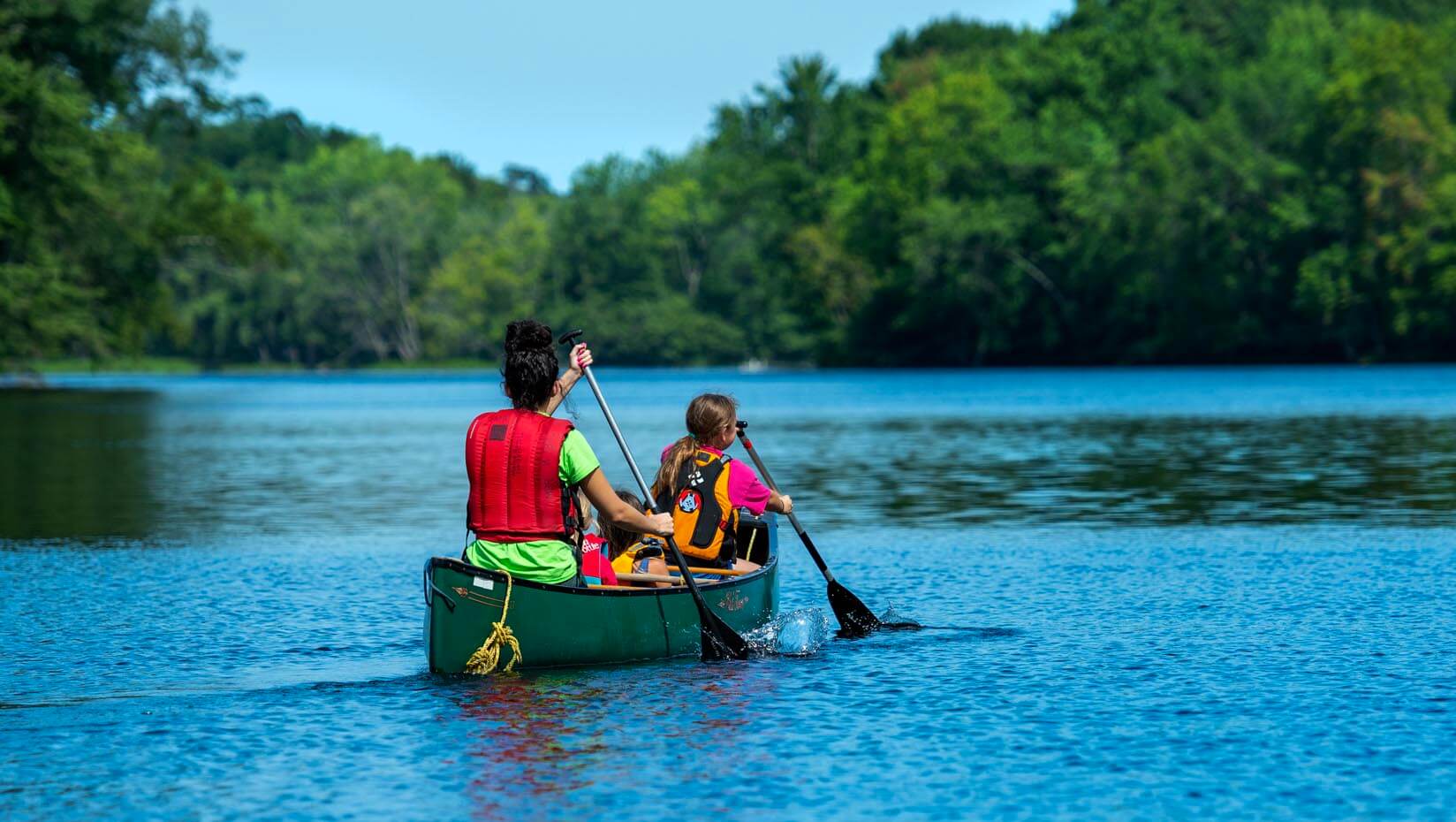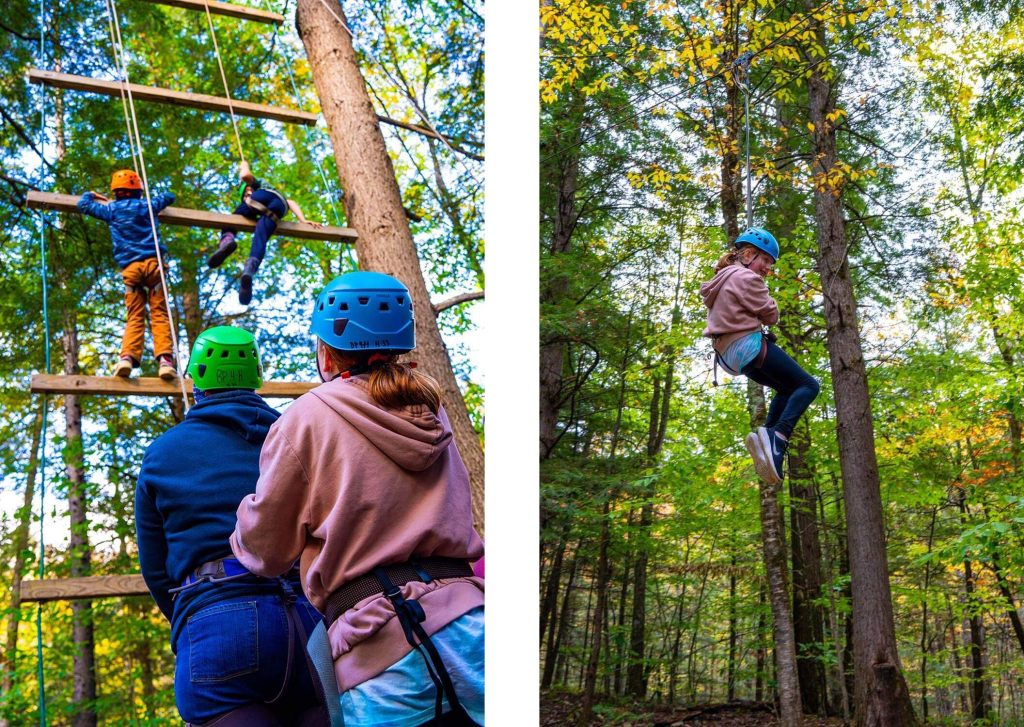
Through new community partnerships, UMaine Extension helps to bring outdoor learning to preK-12 students statewide
Maine Outdoor School for All (MOSFA), a network of organizations that includes University of Maine Cooperative Extension, is announcing the expansion of its community partnership, taking a significant step toward the goal of offering outdoor education to students across the entire state.
To commemorate the milestone, a ceremonial signing event was held at UMaine on Jan. 19, symbolizing the commitment of MOSFA members to provide academically rigorous experiential learning opportunities in outdoor settings.
Founded in 2010 by The Ecology School, Chewonki, Schoodic Institute and UMaine Extension’s 4-H Centers, MOSFA is a network of organizations working with Maine schools to offer school-year programs combining STEM education with the best in outdoor and experiential learning opportunities. Through engaging overnight programs, students expand their classroom learning in math, science and English while fostering a love for the outdoors, environmental stewardship and a deeper understanding of the natural world.
With the addition of four new community partners, including Hurricane Island Center for Science and Leadership, Kieve-Wavus Education, Cobscook Institute, and Maine Local Living School, the network will now be able to reach more students from all backgrounds and regions of Maine, ensuring that outdoor education is accessible to all. The expansion is an important step toward creating equitable opportunities for students to experience the benefits of outdoor learning.
“Today Maine Outdoor School for All has doubled in size,” said Ryder Scott, executive director of UMaine Extension’s 4-H Camp and Learning Centers. “We have been working for more than a decade now to serve Maine schools, creating opportunities during the academic year for students to learn together in the great outdoors. To expand our capacity at this moment, when getting kids outdoors is more critical than ever, is a great achievement.”

During the ceremonial signing, representatives from the organizations were joined by Extension Dean Hannah Carter and Associate Dean Jason Bolton, demonstrating the commitment of Cooperative Extension as a leader in the Outdoor School for All effort.
“This is a historical date,” said Drew Dumsch, president and CEO of The Ecology School at River Bend Farm, one of the founders of MOSFA. “Maine Outdoor School for All is a network that has already been working for 14 years in the state. And our goal is pretty simple: give every child in Maine a chance to come to an Outdoor School and spend three, four, five days, staying overnight and sharing meals together. We want to give kids the chance to be outside for hours at a time, learning about agriculture, conservation and climate change. Coming out of the pandemic, these experiences are critical to kids’ social emotional wellbeing. It is really amazing to see what Outdoor Schools can do. To know that Extension is the bedrock supporter and, moving forward, will be working with all the other Outdoor Schools is totally exciting.”
“There has been a lot of hard work, a lot of dedication by the people in this room trying to reach kids and to create opportunity. This feels like we are taking a real tangible step forward,” said Nick Fisichelli, president and CEO of Schoodic Institute at Acadia National Park. “The goal with Maine Outdoor School for All is that the programs are integrated into the classroom curriculum and aligned with state learning standards. So, it is not just a one-off separate learning experience, but it is really part of their education, part of what they are doing in the classroom.”
The coalition has been working to secure State funding to provide equitable access to high-impact outdoor educational experiences for all Maine students through LD 1817. That bill has received overwhelming bipartisan support and is pending in the Maine Legislature.
“We are grateful that the legislature recognizes the importance of outdoor education and hopeful we can find successful funding strategies to bring these opportunities to students,” said Dumsch. “This is important to the people of Maine, it is important to students and kids, this is important to classroom teachers, it is important to workforce development. Outdoor learning has proven to be a powerful tool in engaging students, teaching STEM education, fostering a deeper understanding of the natural world and promoting environmental stewardship. Especially with this expansion, MOSFA can make a lasting impact on the lives of Maine students.”
To date, MOSFA has raised over $2 million through private philanthropy and corporate sponsorships to help more than 15,000 students from Maine schools attend Outdoor School programs with their classmates and teachers.
For more information visit the MOSFA webpage.
Contact: Ryder Scott, ryder.scott@maine.edu, 207.665.2068
